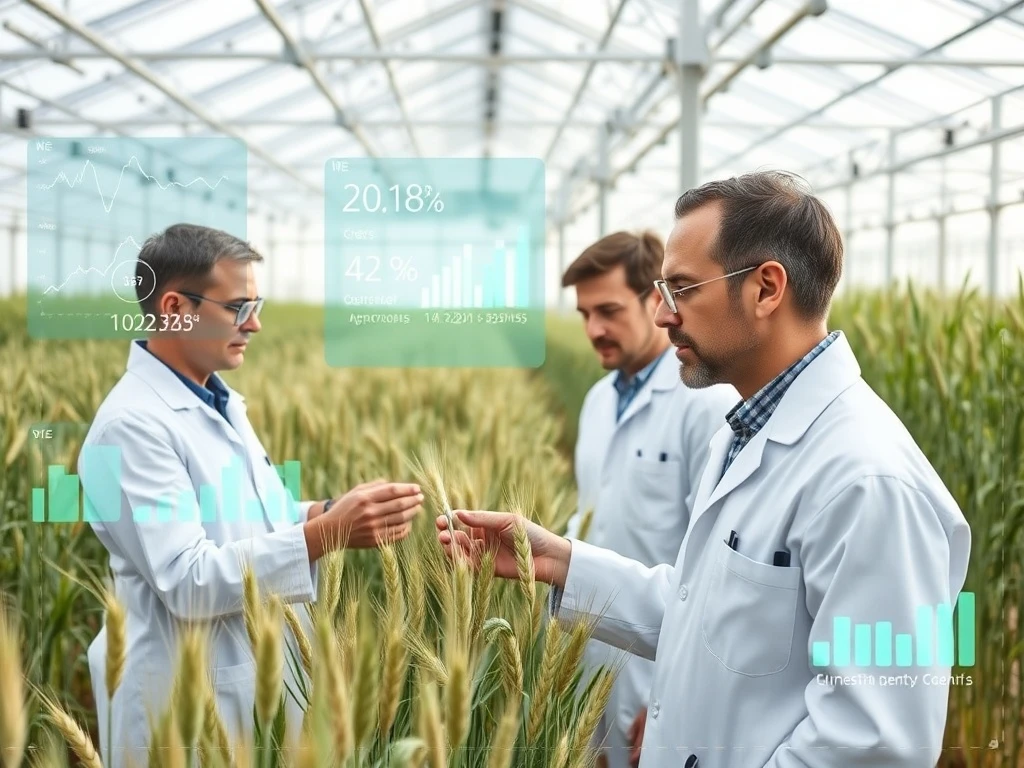Oxford-based biostimulant startup SugaROx has successfully secured £1 million in additional funding to accelerate its groundbreaking agricultural technology trials. This strategic investment positions the company to transform sustainable farming practices across global markets.
Biostimulant Startup Secures Major Funding Round
The funding round includes a significant £400,000 investment from The Mosaic Company, one of the world’s largest fertilizer producers. Existing investors Future Planet Capital and Regenerate Ventures participated alongside UK angel investors. This financial backing enables the biostimulant startup to expand manufacturing capabilities and accelerate field testing timelines.
Revolutionary Technology Behind the Biostimulant Startup
SugaROx’s innovative approach centers on Trehalose-6-Phosphate (T6P), a proprietary biostimulant that enhances crop performance through scientific precision. The technology works by:
- Inhibiting SnRK1 enzyme that signals energy scarcity in plants
- Improving crop yield through enhanced metabolic processes
- Increasing resilience against environmental stressors
- Supporting sustainable farming practices worldwide
Market Expansion Strategy for the Biostimulant Startup
The biostimulant startup plans UK market launch for its wheat biostimulant in 2027, followed by EU entry in 2028. Current trials include soybean and maize crops, with US and Brazilian market expansion targeted shortly after. Safety tests completed this year confirmed favorable regulatory prospects, encouraging partner requests for large-scale samples.
Strategic Partnerships Accelerate Biostimulant Startup Growth
Mosaic’s involvement provides access to extensive US trial networks and TruResponse digital platform. This partnership allows large-scale result visualization and analysis. CEO Mark Robbins emphasized the funding’s critical role in meeting growing product sample demand and accelerating manufacturing transition from lab to pilot facility.
Scientific Foundation of the Biostimulant Startup
Founded to commercialize plant biochemistry research, SugaROx brings science-backed innovation to sustainable crop production. The company combines £2.4 million Innovate UK grant with new funding to scale T6P manufacturing. Chief Technical Officer Dr. Cara Griffiths highlights the value of established trial networks for product validation at scale.
Future Vision for Biostimulant Innovation
The biostimulant startup aims to transform agricultural practices through collaborative science-based solutions. Global biostimulant markets show 11% compound annual growth, positioning SugaROx at the forefront of this expanding industry. The company’s technology addresses increasing demand for sustainable crop input solutions.
Frequently Asked Questions
What are biostimulants and how do they work?
Biostimulants enhance natural plant processes to improve nutrient efficiency, stress tolerance, and crop quality without acting as fertilizers or pesticides.
How does SugaROx’s T6P technology differ from conventional biostimulants?
T6P specifically targets SnRK1 enzyme inhibition, directly addressing plant energy signaling mechanisms for precision performance enhancement.
When will SugaROx products become commercially available?
The company targets UK market launch in 2027 for wheat applications, with EU expansion planned for 2028 following successful trials.
What crops is SugaROx currently testing?
Current trials focus on wheat, soybean, and maize, with expansion plans for additional staple crops in major agricultural markets.
How does Mosaic’s involvement benefit SugaROx?
Mosaic provides access to extensive trial networks, digital analysis platforms, and industry expertise crucial for large-scale validation and market penetration.
What makes biostimulants important for sustainable agriculture?
Biostimulants enhance crop performance while reducing environmental impact through improved nutrient efficiency and reduced chemical input requirements.














